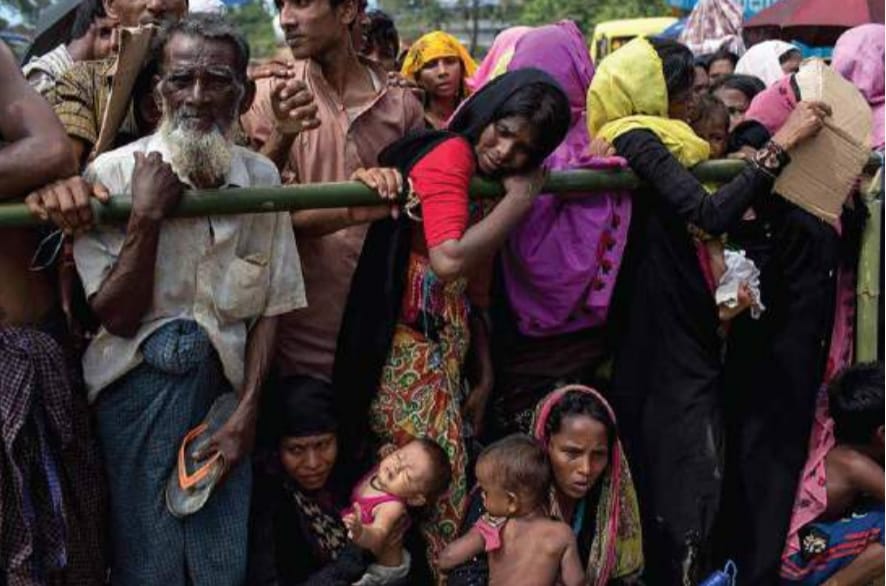Voice of The Victims:
1. After more than six years in refugee camps scattered all around the southern half of Cox’s Bazaar district, Rohingya’s are increasingly becoming vocal to their rights and emphasized fundamentals for their safe return to Rakhine State. Their key demands include citizenship recognition, freedom of movement, and property restitution. In an interview with Mr. Proshoon Rahmaan, producer of the 2019 Rohingya Documentary film ‘Long Period of Persecution’, Mr. Mohammad Abul Kalam, the former Refugee, RRRC had identified four key stumbling blocks, preventing any sustainable repatriation initiatives of Rohingyas:
a) They must be recognized as an ethnic population of Myanmar e.g., Rohingyas should be awarded full citizenship rights.
b) After returning to Myanmar, the Rohingyas must be allowed to go back to their respective villages rather than (IDP) camps in Myanmar after leaving a camp-life in Bangladesh.
c) The Rohingyas must enjoy basic civil rights in Myanmar including; freedom of movement, livelihood opportunities, access to education, healthcare facilities etc.
d) They must be allowed to get back the properties that belong to them before their displacement.
The residing in Bangladesh, who volunteered to speak for their communities came up with more precious demands, such as;
a) Perpetrators (committed atrocities against them, notably Myanmar military and their associates) must be taken to international trial.
b) Rohingyas must have legitimate rights like every other community of Myanmar.
c) Full ‘Citizenship Rights’ for the Rohingyas (in Myanmar) prior any repatriation initiatives to be materialized.
Bangladeshi Standpoint:
2. The Bangladeshi government emphasizes that, any solution to the repatriation lies with Myanmar, as stated by the Hounarable Prime Minister (HPM) of Bangladesh: “…the Rohingya crisis has its origin in Myanmar, so its solution has to be found in Myanmar.” However, some misrepresent the issue as a ‘Crisis between Bangladesh and Myanmar’, which Mr. Md. Shahidul Haque, former secretary Ministry of Foreign Affairs, Bangladesh refutes, stating, “The Rohingya crisis is fundamentally a historic conflict between Myanmar government and one of its own population.” Unlike past repatriation successes, today’s geopolitics involve more active global communities and influential media, complicating the Rohingya crisis.
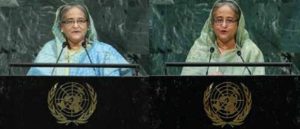
Framework for Solution:
3. The UNGA Speeches of Bangladeshi HPM: At the 72nd United Nations General Assembly (UNGA) Session, the HPM Sheikh Hasina proposed a ‘Five Point Solution’ to the Rohingya crisis. This solution, deemed thoughtful, pragmatic, and realistic, addresses key factors associated with the crisis:
a) Myanmar must unconditionally stop the violence and the practice of ethnic cleansing in the Rakhine State immediately and forever.
b) UN Secretary General should immediately send a fact-finding mission to Myanmar.
c) All civilians irrespective of religion and ethnicity must be protected in Myanmar. For that ‘safe zones’ could be created inside Myanmar under UN supervision.
d) Ensuring sustainable return of all the forcibly-displaced Rohingyas in Bangladesh to their homes in Myanmar.
e) The recommendations of the Kofi Annan Commission Report must be immediately implemented unconditionally and in its entirety.
The HPM followed up with her five-point solution with a four-point objective approach to the crisis in her speech to the following year’s General Assembly session; 73rd UNGA:
a) Myanmar must manifest clear political will supported by concrete actions for sustainable return and reintegration of the Rohingya to Myanmar.
b) Myanmar must build trust among the Rohingya by discarding discriminatory laws and practices and allowing ‘go and see’ visit to the Northern Rakhine by the Rohingya representatives.
c) Myanmar must guarantee security and safety of the Rohingya by deploying civilian monitors from international community in the Rakhine state.
d) International communities must ensure that the root causes of Rohingya problem area addressed and the violation of human rights and other atrocity crimes committed against the Rohingya are accounted for.
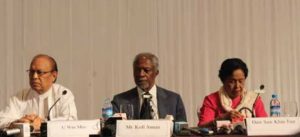
Framework for Solution-An Analysis:
4. The HPM of Bangladesh proposed a ‘Five-point Solution’ at the 72nd UN General Assembly and a ‘Four-point Objective Approach’, which explores crucial events for solving the Rohingya crisis. This merits further analysis to understand its outreach and ramifications:
a) Stopping violence and ethnic cleansing i.e., halting military operations and abandoning draconian counter-insurgency strategies like the ‘four-cut’ tactic.
b) Call for a UN Fact-finding mission led to its initiation by the UN Secretary General a year later, indicating momentum from her address.
c) Creating a ‘Safe Zone’ in Rakhine State by drawing on historical administrative structures like the Mayu Frontier Administration.
d) Emphasizing the need for ‘sustainable return’, highlights past failed repatriation efforts due to the failure to address root causes of the crisis.
e) The Kofi Annan Commission Report, released just before the current exodus, offers comprehensive recommendations for resolving the crisis.
f) In her 73rd UNGA address, the HPM urged Myanmar to show ‘Political Will’ & ‘Concrete Action’, citing the ongoing plight of Rohingya IDPs in Rakhine State.
g) Building trust is crucial for repatriation; Myanmar has failed to materialize the HPM’s proposal for ‘go and see’ visits by Rohingya representatives.
h) Given the history of military operations and local government maltreatment of Rohingyas in Myanmar, the HPM proposes international civilian monitors to oversee their situation.
i) Addressing the core cause of the problem, particularly the lack of Rohingya rights in the Burmese constitution, is critical for assuring returnees’ safety and bringing offenders accountable for their crimes.
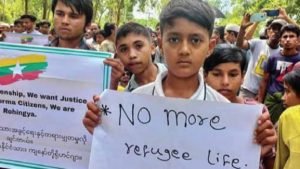
5. Kofi Annan Commission Report: The ‘Advisory Commission on Rakhine State’, chaired by former UN Secretary-General Kofi Annan, submitted its final report to Burmese authorities on August 23, 2017. Established by Myanmar’s State Counsellor Aung San Suu Kyi on September 5, 2016, the Commission addressed challenges in Rakhine State, emphasizing Rohingya issues Among 88 recommendations, the last four emphasized implementation.
a) The Commission urges the Government to involve local communities in decision-making and ensure their benefit from natural resource extraction, advocating for adequate compensation and infrastructure investment.
b) The Commission recommends expediting citizenship verification, reviewing the 1982 Citizenship Law to meet international standards, reassessing ethnicity-citizenship linkage, and enabling naturalization for stateless individuals.
c) Ensuring freedom of movement regardless of religion, ethnicity, or citizenship status, the Commission suggests lifting existing restrictions and measures to prohibit informal barriers.
d) Urgent steps are needed for communal representation, particularly for underrepresented groups like ethnic minorities, stateless, and displaced communities.
e) Protection of historic, religious, and cultural sites in Rakhine State.
f) Inter-communal dialogue at various levels is encouraged to foster cohesion.
g) To enhance security, the Commission proposes simplifying Rakhine’s security infrastructure and creating a unified policing agency.
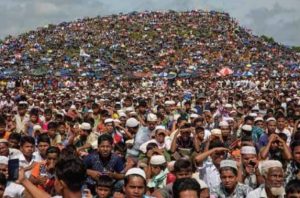
h) Strengthen bilateral cooperation between Myanmar and Bangladesh to address shared challenges like drug trafficking and secure the border.
i) Appointing a ministerial-level coordinator to oversee policy on Rakhine State and ensure the effective implementation of the Commission’s recommendations.
Conclusion
6. The core of any Rohingya repatriation initiative hinges on granting them full citizenship rights, a contentious issue deeply rooted in conflicting narratives between the Rohingya and Rakhine communities. Mistrust, compounded by radical elements on both sides, hinders consensus. Elderly Rohingyas recount past forced migrations and severe state restrictions in Rakhine. Previous repatriation attempts failed due to the unresolved citizenship rights issue, leaving Rohingya stability and permanency unachieved on their own land. With the advent of Arakan Army’s military offensive to the Rakhine State, that effectively granted the territorial control over 60% of Rakhine State, a new dynamic has been added to the repatriation equation. But to the contrary to many who believes otherwise, the proposal put forwarded by the HPM Sheikh Hasina, still remains to be the only logical pathway to solution of the crisis, for the Rohingya’s to go back to their motherland.
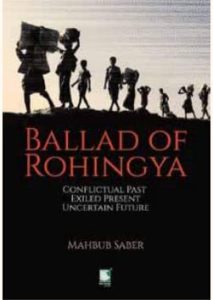 Written by-
Written by-
Mahbub Saber
Expert on Rohingya and Myanmar Affairs
The article is an extract from the authors book Ballad of Rohingya

